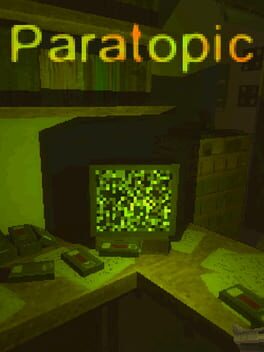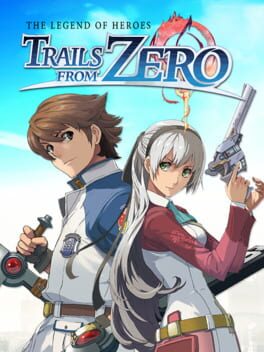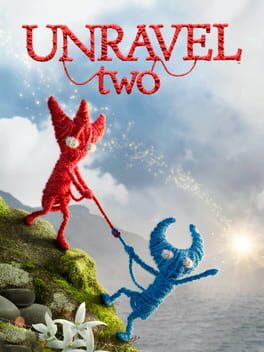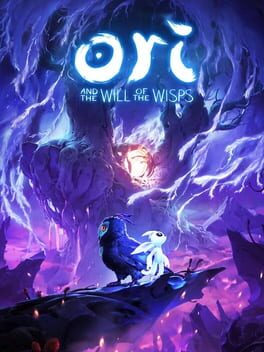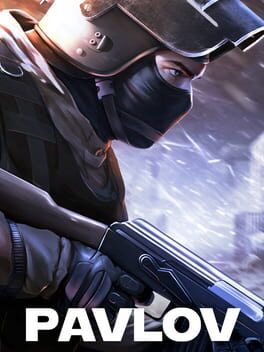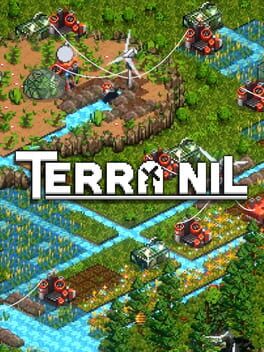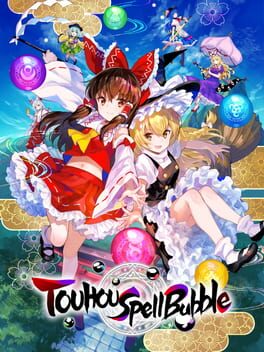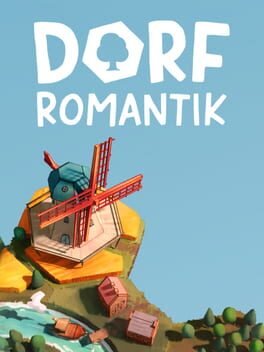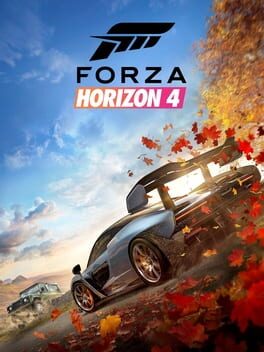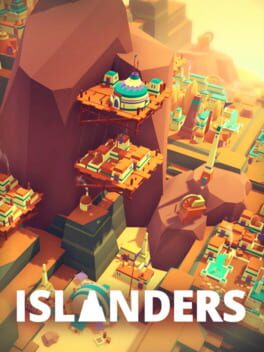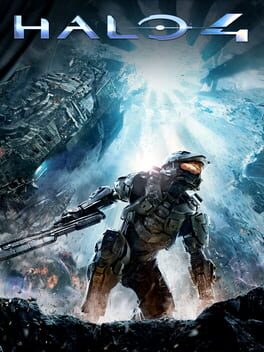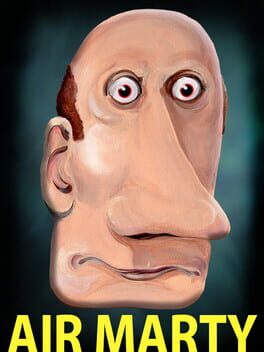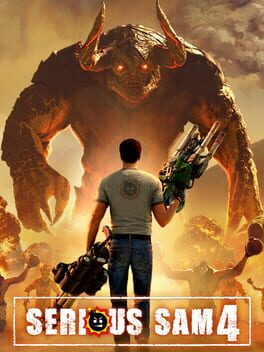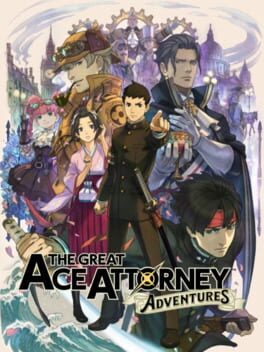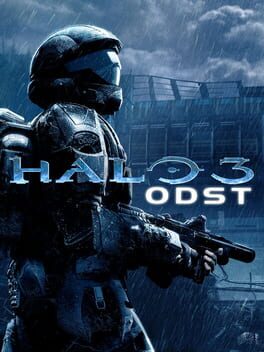Cakewalking
2018
2018
Picked this game up randomly and wow this is a sweet surprise.
Over the years "puzzle platformer" became almost a derogatory moniker for a generic indie game, and yet I haven't seen a title that manages to merge both of these things in a satisfying punch. A usual game with this tag is either a side-scrolling puzzler where you occasionally have to jump over an obstacle, or a pure precision platformer that might require to consider your surroundings from time to time and map out a path through a level layout. Can't say these approaches aren't legit, but none of those got a balanced merger of genres going.
The surprising strength of Unravel 2 is that in 10 minutes it manages to introduce gameplay language with a set of mechanics that complements both puzzling and platforming, then lets you have a comfy adventure that constantly puts these mechanics to test. It's fine paced, and levels introduce new ideas to the mix without feeling gimmicky and superficial, breaking out of the base set of rules only once for the final gameplay sequence. It's not a hard game – the puzzles aren't complex and platforming doesn't require much skill, but you always do something interesting and fun. Moreso almost all reviews I saw online didn't bother to point out that there's a set of short challenge levels that nicely complement the main campaign by developing the ideas even further and giving more complex problems to solve if you do look for them. It's just a nice little package for both vibing and tryharding.
Still it missteps a little. While puzzle design nearly all is neat, platforming mostly feels good but shows the lack of controllable snap when it starts requiring more precision in those challenge levels. The game is gorgeous, but experience side is a little heavy handed and maybe it could be more of a hit if any kind of direct human involvement was replaced with smarter environmental storytelling. Still it's nothing compared to my disappointment in how much Unravel 2 came under people's radar. Maybe it's the positioning of cutesy "play with your mom or gf" game that harmed it, but I feel like if it was any other publisher there would be much more of a positive buzz around. Glad I discovered it though, it's a good time.
Oh and by the way the Switch version is excellent.
Over the years "puzzle platformer" became almost a derogatory moniker for a generic indie game, and yet I haven't seen a title that manages to merge both of these things in a satisfying punch. A usual game with this tag is either a side-scrolling puzzler where you occasionally have to jump over an obstacle, or a pure precision platformer that might require to consider your surroundings from time to time and map out a path through a level layout. Can't say these approaches aren't legit, but none of those got a balanced merger of genres going.
The surprising strength of Unravel 2 is that in 10 minutes it manages to introduce gameplay language with a set of mechanics that complements both puzzling and platforming, then lets you have a comfy adventure that constantly puts these mechanics to test. It's fine paced, and levels introduce new ideas to the mix without feeling gimmicky and superficial, breaking out of the base set of rules only once for the final gameplay sequence. It's not a hard game – the puzzles aren't complex and platforming doesn't require much skill, but you always do something interesting and fun. Moreso almost all reviews I saw online didn't bother to point out that there's a set of short challenge levels that nicely complement the main campaign by developing the ideas even further and giving more complex problems to solve if you do look for them. It's just a nice little package for both vibing and tryharding.
Still it missteps a little. While puzzle design nearly all is neat, platforming mostly feels good but shows the lack of controllable snap when it starts requiring more precision in those challenge levels. The game is gorgeous, but experience side is a little heavy handed and maybe it could be more of a hit if any kind of direct human involvement was replaced with smarter environmental storytelling. Still it's nothing compared to my disappointment in how much Unravel 2 came under people's radar. Maybe it's the positioning of cutesy "play with your mom or gf" game that harmed it, but I feel like if it was any other publisher there would be much more of a positive buzz around. Glad I discovered it though, it's a good time.
Oh and by the way the Switch version is excellent.
Just like its predecessor the Will of the Wisps is a gorgeous platforming action game with a lot of creativity in its mechanics and set pieces. But unlike the Blind Forest, the game's got variety on display that doesn't let it outstay its welcome.
While it definitely felt like the challenge level in the sequel is lower, I think it did a way better job at pacing the upgrades progression and utilizing the moveset you gain over the course of the story. The unique floaty Ori platforming is better fleshed out here, leading to the final level where you spend way more time in the air rather than on the ground while grappling, dodging, floating and jumping off enemes and bullets. You just feel far more powerful, and have much fun flexing your accumulated aerial superiority. And while it's not a show stopper, I quite enjoyed the combat: it's snappy and visually pleasing with solid enemy and bosses design.
I just wish Will of the Wisps demanded a bit more from me personally. I barely had any stuggles with platforming, there was only one chase sequence that took me more than a single retry, the healing ability makes most fights in the game really hard to lose and you gather so many health upgrades over the playthrough that by the end your Ori headbutt through obstacles without care in the world. Some of these problems can be overcome with self-imposed challenges, but I would definitely love to see an optional area with more platforming stages that demand mastery of all mechanics to let them breathe even more. Still, when presented a choice between interesting or challenging I will always pick the former. Seems like Will of the Wisps made the same choice.
While it definitely felt like the challenge level in the sequel is lower, I think it did a way better job at pacing the upgrades progression and utilizing the moveset you gain over the course of the story. The unique floaty Ori platforming is better fleshed out here, leading to the final level where you spend way more time in the air rather than on the ground while grappling, dodging, floating and jumping off enemes and bullets. You just feel far more powerful, and have much fun flexing your accumulated aerial superiority. And while it's not a show stopper, I quite enjoyed the combat: it's snappy and visually pleasing with solid enemy and bosses design.
I just wish Will of the Wisps demanded a bit more from me personally. I barely had any stuggles with platforming, there was only one chase sequence that took me more than a single retry, the healing ability makes most fights in the game really hard to lose and you gather so many health upgrades over the playthrough that by the end your Ori headbutt through obstacles without care in the world. Some of these problems can be overcome with self-imposed challenges, but I would definitely love to see an optional area with more platforming stages that demand mastery of all mechanics to let them breathe even more. Still, when presented a choice between interesting or challenging I will always pick the former. Seems like Will of the Wisps made the same choice.
2017
2019
2020
This game is betrayed by very steep price, Switch exclusivity and no online capabilities, but at its core this is one of the best VS puzzlers out there, not just Touhou games. The learning curve is pleasant, mechanics are very creative and great kinesthetics makes executing large rhythm combos hit brain with trucksloads of serotonin. There's a certain rubberband quality to the game's flow which makes battles very dramatic, and I see this as an aspect that should be ensued by all great puzzlers.
What I didn't expect is how cool the story is? There's no high stakes in play or any hugely dramatic events, but it nicely explores the concept of "what if Gensokyo was engulfed in competition fad" and makes Touhou characters go through some fun and heartfelt interactions without turning them into rote memes and stereotypes. There's even little perspective play as you go through Marisa and Reimu routes and see their sides to interactions that the other character didn't explore. It's simple, but rad, exactly the type of story I wish fangames told more often.
Still, this is not an affordable game with very niche appeal that you can't even play online, and on this matter I cannot recommend it to everyone. It pushed all the right buttons for me though.
What I didn't expect is how cool the story is? There's no high stakes in play or any hugely dramatic events, but it nicely explores the concept of "what if Gensokyo was engulfed in competition fad" and makes Touhou characters go through some fun and heartfelt interactions without turning them into rote memes and stereotypes. There's even little perspective play as you go through Marisa and Reimu routes and see their sides to interactions that the other character didn't explore. It's simple, but rad, exactly the type of story I wish fangames told more often.
Still, this is not an affordable game with very niche appeal that you can't even play online, and on this matter I cannot recommend it to everyone. It pushed all the right buttons for me though.
2021
Maybe I expected too much, but from a self-posed serene city and landscape builder I wanted another neat space optimization puzzle in the vein of Islanders or Terra Nil... What I got is a tedious pattern matching game with artstyle that obfuscates rather than outlines core matching mechanic. At least it's got vibes in check.
2018
2019
A little city builder which is more of a space optimization game where in order to progress you are required to hit a certain quota of adjacement bonuses. It's more captivating than this explanation would lead to believe, and few failed attempts to create a garden city will launch you the way of very natural and satisfying learning curve of hindsight in urban planning. It didn't steal many hours of my time, but I couldn't put it down until my little picturesque town was erected in all its glory
2012
Halo 4 is hauled as some sort of disease that put the series to grave bed so I expected the worst. Turns out it's not all bad?
Sure, there is quite a few of unfortunate mechanical problems to name. Covenant AI is noticeably downgraded and there are balance problems with lower tier enemies that make their presence more of a hassle on legendary difficulties than they should be. On the other hand, prometheans are way overtuned. I understand the challenging task of creating a new commando unit that would feel different from elites, brutes and flood, so knights were given a large kit to give them the edge. They have fast recharging shields, they can teleport to get out of danger and screw with your positioning, they use a slew of new promethian weapons and they have strong melee attacks to boot. But this lack of a clear weakness made them the least interesting enemy to fight, making shoot until they die the only applicable approach to deal with them. Also, heavy knights with canons deserve separate fuck you mention as whether you survive the burst from their shots depends entirely on a coin toss – gladly there are like three of them over the course of campaign. Another problem cropped up where I didn't expect with the change of gun sounds, making them sound less distingushiable and messing up the careful soundscape Bungie created for previous games: the audio isn't as much of a trusted source of information on battlefield anymore.
This growing stock of little problems is a bummer since there are things to like in Halo 4. The art direction is enchanting, with massive structures, giant machinery and overwhelming bloom instilling a reminder of how puny your little human presence is compared to the threats you deal with. There are some genuinely cool and memorable missions here with combat scenarios that do stick up in memory. It plays that Halo card masterfully making you enter the flaring up battle between competing enemy sides, giving you the role of a decisive third party that sweeps the field. And lastly, the story achieves levels of emotional complexity you just don't expect a Halo game reach, giving Chief's character more nuance than he's ever gotten. So, underneath many problems there's actually a good game which probably just needed another round of refinement and playtesting in order to get to that degree of a satisfying Halo campaign. Sadly it just isn't quite there yet.
Sure, there is quite a few of unfortunate mechanical problems to name. Covenant AI is noticeably downgraded and there are balance problems with lower tier enemies that make their presence more of a hassle on legendary difficulties than they should be. On the other hand, prometheans are way overtuned. I understand the challenging task of creating a new commando unit that would feel different from elites, brutes and flood, so knights were given a large kit to give them the edge. They have fast recharging shields, they can teleport to get out of danger and screw with your positioning, they use a slew of new promethian weapons and they have strong melee attacks to boot. But this lack of a clear weakness made them the least interesting enemy to fight, making shoot until they die the only applicable approach to deal with them. Also, heavy knights with canons deserve separate fuck you mention as whether you survive the burst from their shots depends entirely on a coin toss – gladly there are like three of them over the course of campaign. Another problem cropped up where I didn't expect with the change of gun sounds, making them sound less distingushiable and messing up the careful soundscape Bungie created for previous games: the audio isn't as much of a trusted source of information on battlefield anymore.
This growing stock of little problems is a bummer since there are things to like in Halo 4. The art direction is enchanting, with massive structures, giant machinery and overwhelming bloom instilling a reminder of how puny your little human presence is compared to the threats you deal with. There are some genuinely cool and memorable missions here with combat scenarios that do stick up in memory. It plays that Halo card masterfully making you enter the flaring up battle between competing enemy sides, giving you the role of a decisive third party that sweeps the field. And lastly, the story achieves levels of emotional complexity you just don't expect a Halo game reach, giving Chief's character more nuance than he's ever gotten. So, underneath many problems there's actually a good game which probably just needed another round of refinement and playtesting in order to get to that degree of a satisfying Halo campaign. Sadly it just isn't quite there yet.
2019
2020
Four levels in. Weapons felt great to shoot and old enemies look pretty fresh, but everything else is just in such a rough alpha state it bogs my mind how this game was released to the public. The writing is dang awful. The levels are either linear claustrophobic hallways or football fields of absolutely nothing, there's just no sense of space and pacing in level design. There wasn't a single fight that got me excited by its intensity and scale. The "fresh" things so far are some new terrible enemy types, and unnecessary skill tree that only serves to gate you from abilities that should be in your base kit. There's just nothing new and interesting the game brings to the table which leaves me wondering why the heck SS4 even needed to exist. But even more pressing question is, what the hell happened to Croteam for the game to release in this state? And how it bodes for the supposed The Talos Principle sequel?
I had originally finished GAA1 in 2019 with the Scarlet Study translation and felt good enough about the game to give it a 4, but playing the sequel with those two years of distance made me reexamine the feelings on that game a little to bring the score down a peg. Mind you it's still a fresh feeling Ace Attorney title and (S)herlock is the most joyous interpretations of the eccentric detective, but with the overarching mystery and emotional payoff hinging this hard on the resolution in the second game, GAA1 just didn't leave an impact on its own. I put a great trust on GAA2 to pull it through though.
2009
I enjoyed the swing in mood, but essentially it's just more Halo 3 with a hub level and more formulaic individual mission design. There's a warthog mission, a tank mission, a sniper level, a sewer level etc; it's not gonna be surprising on this front. The changes in mechanics and game feel are also pretty miniscule despite you playing as weaker ODST soldiers rather than herculean Chief.
It's still solid and worth going through, especially as a sneak peak for how well halo combat could work in a free to roam interconnected map when player is left to progress at their own pace. I'd be pretty pissed if it was sold to me as a full-price game tho.
It's still solid and worth going through, especially as a sneak peak for how well halo combat could work in a free to roam interconnected map when player is left to progress at their own pace. I'd be pretty pissed if it was sold to me as a full-price game tho.
